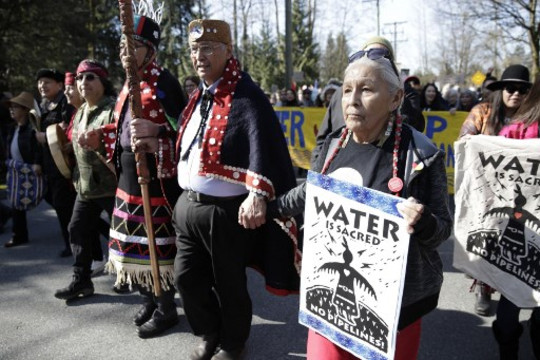Journalist Kristian Lindhardt, working for the Danish public broadcaster DR, was forced to fly back to Denmark upon his arrival in Canada despite presenting press credentials and necessary paperwork justifying his stay in the country. He had also arranged a 14-day quarantine in Vancouver.
Lindhardt had been in Canada before the Covid-19 lockdown to film a documentary on the resistance by indigenous groups against the Trans Mountain Pipeline in the Western Canadian province British Columbia. The pipeline has sparked protest over concerns that it will damage the local ecosystem. Lindhardt wanted to returnk to Canada to continue with the documentary and report on it for his employer DR.
In an interview with The Tyee, Lindhardt said the border officers told him that his work was not essential because there are other journalists in Canada. Lindhardt replied that Canadian media is not covering the story sufficiently. He said: "If my time here is postponed for too long, it might decrease some of the pressure on the officials since less media would be present to cover it."
Journalism is an essential service
"Newspapers, television, radio, call centres, online news outlets and other media services" are classified as essential services in British Colombia. Still, there is no regulation covering the right of foreign journalists to be allowed into the country. The Canada Border Services Agency (CBSA) said that decisions are made on a case-by-case basis by border security.
DJ president, Tine Johansen said on Twitter that the deportation of Kristian Lindhardt "is repression of relevant and critical journalism".
Unifor National President Jerry Dias said: "Journalism is an essential service and Canadian border officials must not impede the movement of any journalist operating safely, within the public health directives."
CWA president, Martin O'Hanlon said: "Journalism is of vital importance particularly in times of crisis. Using COVID as an excuse to block a journalist is simply unacceptable. It is especially troubling because COVID is now being used by many regimes as yet another way to crack down on press freedom, and Canada should be setting a positive example for the world. We urge the Canada Border Services Agency to reverse this decision."
IFJ General Secretary, Anthony Bellanger said: "The Covid-19 pandemic must not be used as an excuse to impede certain media coverages and hamper press freedom. The Canadian authorities haven't provided a valid explanation to deport Mr Lindhardt. We urge the government to clarify the situation and guarantee freedom of information and access rights for foreign journalists"

